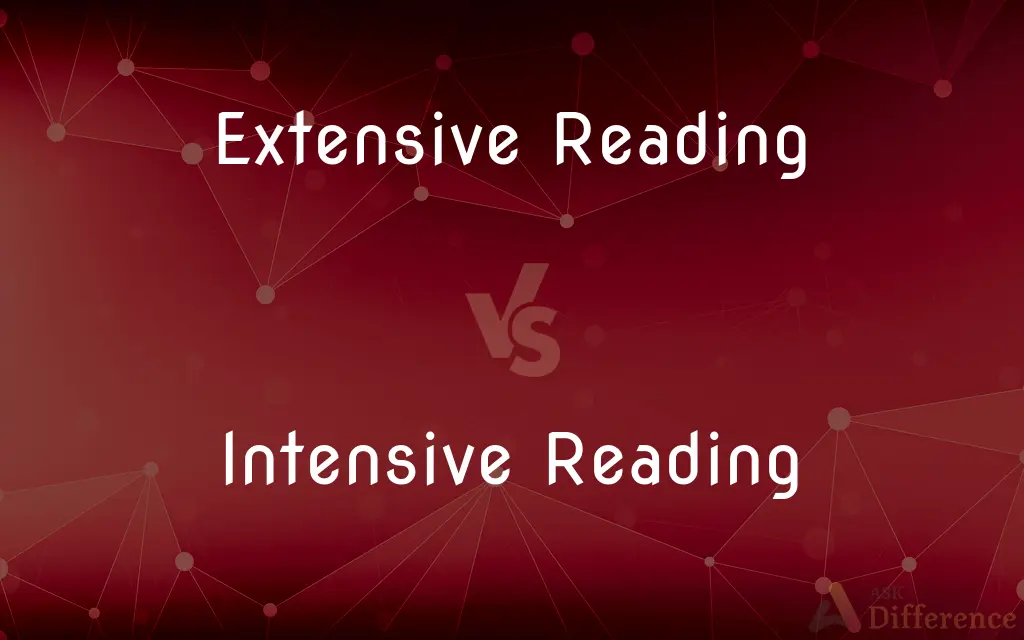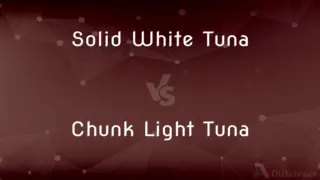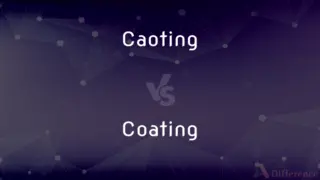Extensive Reading vs. Intensive Reading — What's the Difference?
By Tayyaba Rehman — Published on November 9, 2023
Extensive Reading involves reading broadly for enjoyment and general understanding, while Intensive Reading focuses on reading deeply for detailed comprehension and analysis.

Difference Between Extensive Reading and Intensive Reading
Table of Contents
ADVERTISEMENT
Key Differences
Extensive Reading and Intensive Reading serve distinct purposes in the realm of reading comprehension. While Extensive Reading encourages readers to explore a vast array of materials and genres without lingering on every detail, Intensive Reading demands a closer, more analytical approach to a specific text.
Extensive Reading is often likened to leisurely reading. It emphasizes volume and variety, allowing readers to grasp the general idea or theme of a text. On the flip side, Intensive Reading requires readers to delve deeper, often dissecting, questioning, and reviewing texts for precise comprehension and analysis.
In Extensive Reading, the broader context, general flow, and overall sentiment are paramount. Readers aren't burdened by unfamiliar words or complex sentence structures; the aim is fluidity and enjoyment. Conversely, Intensive Reading often requires tools and strategies, such as dictionaries or annotations, to fully understand and interpret the content.
Extensive Reading can be visualized as skimming the surface of a vast ocean, appreciating its vastness and beauty. Intensive Reading, however, is like diving deep into specific parts of that ocean to study the marine life in detail, understanding every nuance.
Educational systems often employ both Extensive Reading and Intensive Reading techniques. While Extensive Reading builds vocabulary, fluency, and a love for reading, Intensive Reading hones analytical skills, critical thinking, and a deep understanding of language nuances.
ADVERTISEMENT
Comparison Chart
Purpose
For general understanding and enjoyment
For detailed comprehension and analysis
Focus on Details
Not necessary
Crucial
Volume vs. Depth
High volume, broader scope
Deep dive into a specific text
Use of Supplementary Tools
Rarely, if ever
Often, like dictionaries or annotations
Setting
Leisurely environments, like home or beach
Academic or study settings, like classrooms or libraries
Compare with Definitions
Extensive Reading
Extensive Reading is not constrained by unfamiliar terms.
While practicing Extensive Reading, Judy skipped words she didn't understand, focusing on the overall story instead.
Intensive Reading
Intensive Reading examines linguistic structures.
Through Intensive Reading, Paul studied the complex sentence patterns in the article.
Extensive Reading
Extensive Reading enhances fluency and vocabulary.
Teachers recommend Extensive Reading to improve language fluency.
Intensive Reading
Intensive Reading enhances analytical skills.
Intensive Reading of literature sharpens one's critical thinking.
Extensive Reading
Extensive Reading covers a wide range of materials.
The library's diverse collection is perfect for Extensive Reading.
Intensive Reading
Intensive Reading seeks detailed understanding.
Intensive Reading of the manual helped Sam fix his computer.
Extensive Reading
Extensive Reading involves reading for pleasure.
During vacation, Sarah engaged in Extensive Reading, going through several novels.
Intensive Reading
Intensive Reading often requires external tools.
While doing Intensive Reading, Anna often had a dictionary on hand.
Extensive Reading
Extensive Reading aims at general comprehension.
Extensive Reading helped Mike get the gist of various articles in the magazine.
Intensive Reading
Intensive Reading delves deep into the text.
For her thesis, Lisa resorted to Intensive Reading of the primary sources.
Common Curiosities
When should one opt for Extensive Reading?
When aiming to cover a lot of material, build vocabulary, or read for pleasure.
How does Intensive Reading differ?
Intensive Reading focuses on deep comprehension, often examining a text's details and nuances.
Is Intensive Reading time-consuming?
Often, yes, because it requires detailed analysis and understanding of a text.
What is Extensive Reading?
Extensive Reading is reading widely for general understanding and enjoyment.
Why is Intensive Reading critical in academic settings?
It hones analytical skills, promotes critical thinking, and ensures deep comprehension.
Can I skip unfamiliar words during Extensive Reading?
Yes, the aim is general comprehension, not understanding every single word.
Do I need tools like dictionaries for Intensive Reading?
Often, yes, to fully understand and interpret the content.
Does Extensive Reading improve fluency?
Yes, it can enhance reading fluency and general vocabulary.
Does Extensive Reading involve taking notes?
Not usually, as it's more about general comprehension and enjoyment.
Are children encouraged to do Extensive Reading?
Yes, as it instills a love for reading and broadens vocabulary.
Is Intensive Reading limited to textbooks?
No, it can be applied to any material that the reader wishes to understand deeply.
Can fiction novels be used for both Extensive and Intensive Reading?
Yes, depending on the reader's aim – either for general pleasure or detailed analysis.
How often should one practice Intensive Reading?
Depending on the goal, but regularly if aiming to improve analytical and comprehension skills.
Which reading method is better for language learners?
Both have their merits. Extensive Reading builds vocabulary and fluency, while Intensive Reading deepens comprehension and analytical skills.
How can I transition from Extensive to Intensive Reading?
Start by choosing a particular text you're interested in, then focus on understanding its details, structure, and nuances deeply.
Share Your Discovery

Previous Comparison
Solid White Tuna vs. Chunk Light Tuna
Next Comparison
Caoting vs. CoatingAuthor Spotlight
Written by
Tayyaba RehmanTayyaba Rehman is a distinguished writer, currently serving as a primary contributor to askdifference.com. As a researcher in semantics and etymology, Tayyaba's passion for the complexity of languages and their distinctions has found a perfect home on the platform. Tayyaba delves into the intricacies of language, distinguishing between commonly confused words and phrases, thereby providing clarity for readers worldwide.













































